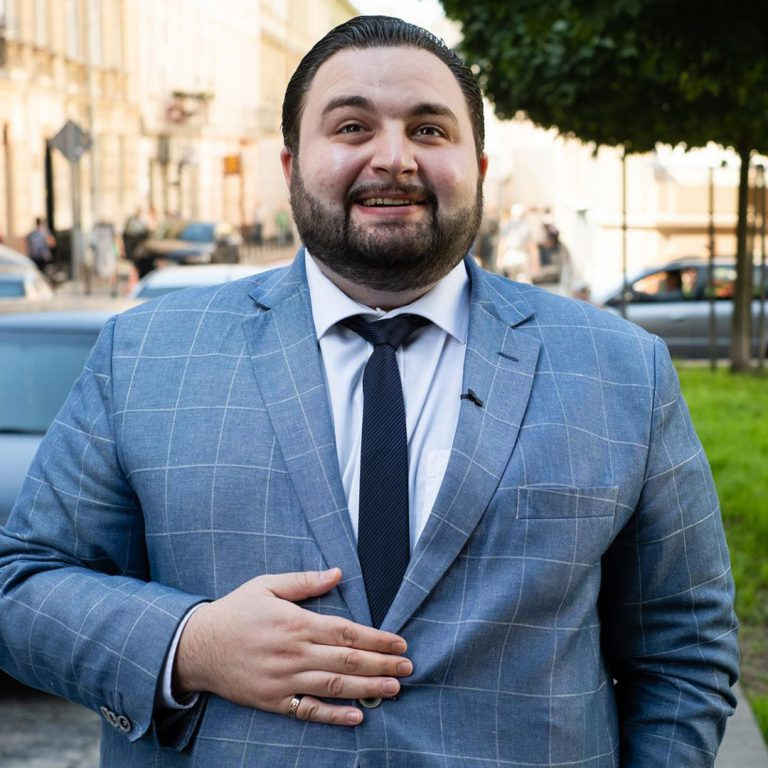At the beginning of Ukraїner project, we aimed to show the cultural, ethnic, culinary, and historical diversity of Ukraine. Our reportage about three Roma villages in Zakarpattia has become one of the most discussed and attention-catching materials. After that, we decided to devote at least one story from every expedition to the Romany topic. While searching for the protagonists, we realized that it is quite difficult to find the stories of successful and active Roma, because for many of them a success means denial of their nationality in order to avoid discrimination. Lviv is one of the most visited cities in Ukraine – a city where you can hear dozens of languages simultaneously in the central square. However, this city is also known for the recent rowdy murder in the Roma settlement. We would like to tell you the story of two Roma men from Lviv who by their own example transform the Roma community and attitude towards it.
Around 700 Roma live in Lviv and the region. All of them are settled, have the documents, their children attend schools and universities. The local Roma have chiefs of the NGOs, successful entrepreneurs and heads of the big IT companies among them. When introducing themselves for the first time, they can easily say, “Hi, I am Roma!”. Despite the stereotypes and being discriminated by the nationality, they have achieved success and tell their stories, so different and so similar at the same time. These are the stories of the Roma who live, study and work in the heart of Halychyna.
Roma of Ukraine “Ternipe”
One of the first and the most active civic organizations that unites the Roma in Ukraine is NGO Roma of Ukraine “Ternipe”. It was founded by the group of the Roma from Halychyna in 1998 in Lviv. The participation in the project funded by the International Organization for Migration was the first initiative of the organization. The aim was to help the Roma who were victims of the Holocaust. Since then, members of NGO have organized more than a dozen of the projects in different areas: justice, education etc. “Ternipe” is among the founders of the first Ukrainian Romany organization “Congress of Roma of Ukraine”, and the first Ukrainian Romany rights and justice organization “Chachipe”. Also, members of the organization participated in establishing the Council of Roma of Ukraine.
During 20 years of work, the organization has done a lot to fight the discrimination and stereotypes about the Roma people.
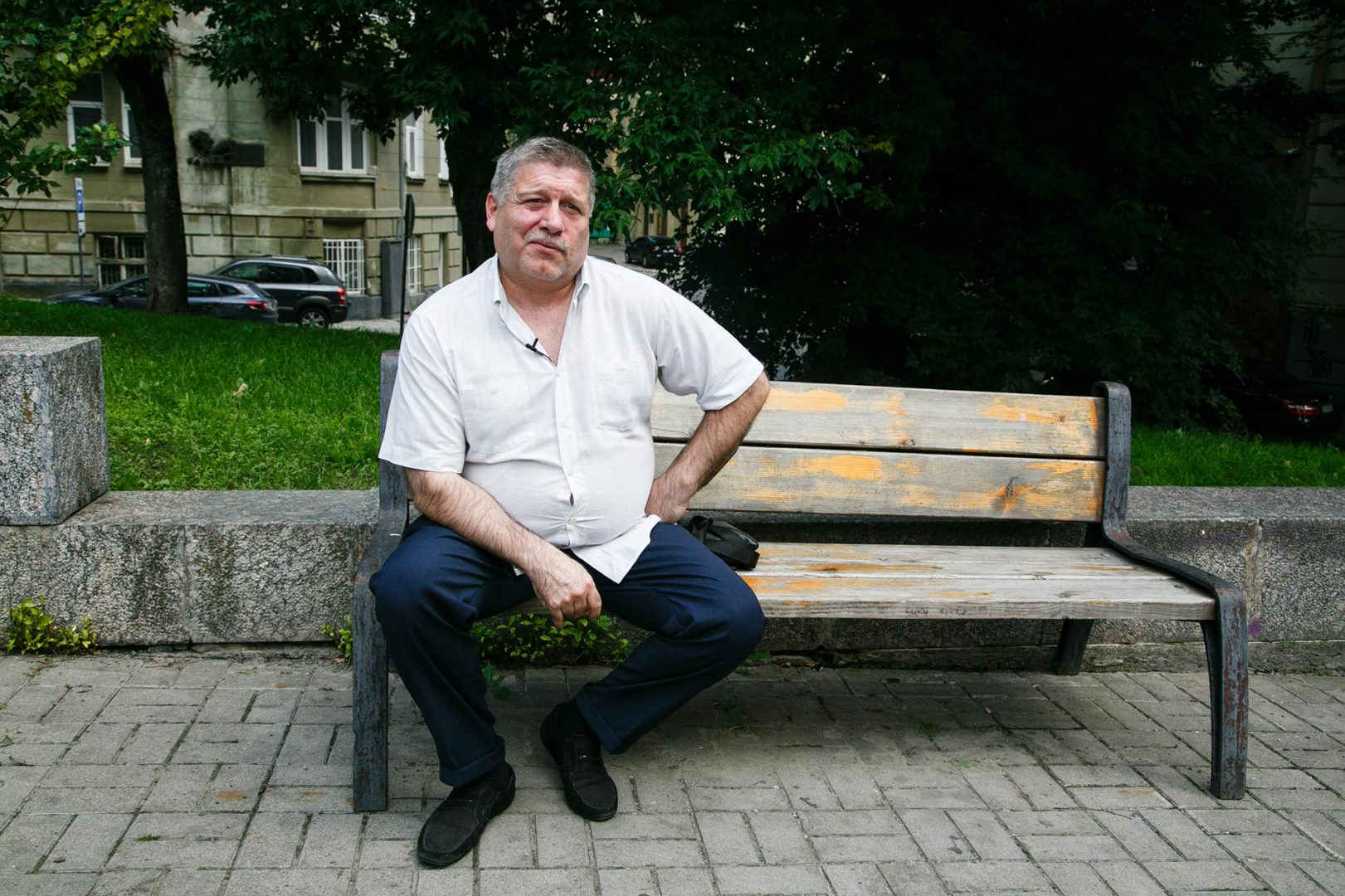
Mykola
Mykola Yurchenko has been a Head of the Board of the NGO Roma of Ukraine “Ternipe” since it was founded. He says that at the beginning it was a youth organization:
─ We met in Lviv, invited also the other NGOs to our presentation. There were media representatives, it was a public event. At that moment we got to know the other heads of the organizations. There were people from Zakarpattia, Odesa, Kyiv – many people were there.
The main aim was to declare the Romany nationality, destroy the stereotypes and show the life of Roma people:
─ These are the same ordinary people as of any other nationality. There are the reach, poor, good and not very good ones. These are normal people. The negative perception of the Roma can be overcome only through our educated youth.
This is why they try to work with youth, to organize different events and seminars in “Ternipe”:
─ We have a yearly increase in the number of adolescents who are studying. It is clear that education allows the progress. The more educated youth there is, the faster the Roma will integrate into the society and negative stereotypes will be debunked.

The situation with the education for Roma is getting better every year. Before, many kids hardly finished 9 school years, but nowadays the majority graduate from school and continue studying in universities, colleges or technical schools.
Mykola adds that economic situation in the country plays an important role too, but NGO works on possibilities for the Roma with higher education to get a job in the area of their specialization:
─ There is still this stereotype about the Roma which does not allow these people to reach higher levels. But we have some examples already, and I hope we will have more, and people would understand that one should not divide them into white, black or green ones.
In 2014-2016, Roma of Ukraine “Ternipe” organized the internships for the Romany youth in the local governments. In 2014, three students from Lviv did the internship in the City Hall, in different departments. In 2015, the programme expanded to six regions of Ukraine, reaching as many as nine in 2016:
─ They were not easily accepted there. The deputies were negotiating, we were sending the letters, but the good thing is that our officials in the city halls also changed their mind. We shot short videos with our smartphones when the official is sitting there and saying, “I couldn’t imagine that a Gipsy would sit here and work on a computer. But in a week it turned out that Volodia is a pretty interesting young person who knows how to work”. And after another week, he was offered an employment.
School of the Romany Activist, which had gathered the youth from the nine regions of Ukraine, is one of the successful projects of Roma of Ukraine “Ternipe”. Boys and girls were taught to moderate and to facilitate. Later, in Lviv, participants of the school became a part of the organizing team of the Ukrainian Romany Fund:
─ We try to hold such meetings because adolescents need these connections, to know about each other. This way, through the communication, they develop social projects that they implement afterward at their places.
Mykola thinks that Zakarpattia region is problematic in terms of education. He argues that there are no good jobs for parents, and families have 7-8 children, which does not allow to prepare a child for school properly. A possible solution, as he sees it, would be a cooperation of local authorities with NGOs.
─ Roma people are often confronted with biased perception in collectives. Because of this, many conceal their nationality, others do not withstand and drop out of schools and universities.
Mykola adds that it is harder for Roma to obtain education and get a job because they constantly have to prove something to someone:
─ It is in all the spheres like this. If our student graduates from university, it is as if he had it twice as hard as another kid because he had been carrying the weight of this stereotype along. But those who overcome it become qualified professionals.
Many Roma in Lviv are entrepreneurs. Some have outlets selling the draft beer, others are working in taxi services, women often work in restaurant kitchens. They also emigrate to work as cooks and cook assistants to Poland and Italy.
Nowadays very few local Roma have high positions. There are no Romany deputies. Mykola recalls that there are only two such deputies in Uzhhorod City Council, but whole Zakarpattia knows them:
─ I hope an attitude will change, no one will be evaluated based on their skin colour or nationality, but on their merit, experience. Then everything would be all right.
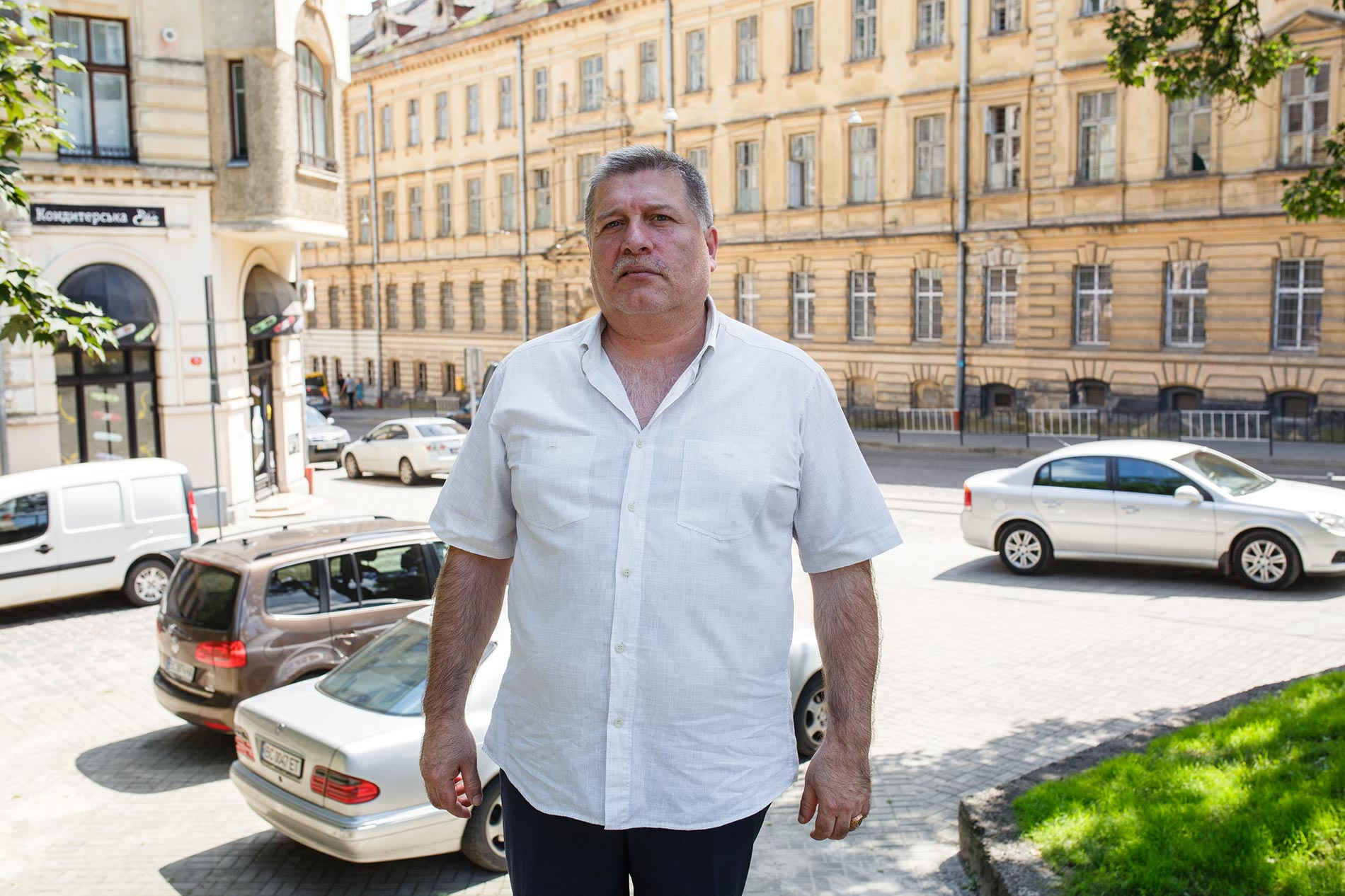
Hi, I am Roma!
Some Roma with lighter complexion who are not easily distinguished by their appearance hide their nationality for easier socialization. But Mykola, despite his light complexion and Ukrainian surname, has never remained silent about the fact that he is Roma. When he was younger he just didn’t announce it:
─ I am from Sinti group of Servitka Roma. We all have light complexion. These are so-called “Ukrainian Roma”. We have ordinary Ukrainian surnames. My surname is Yurchenko.
While studying, Mykola was quiet about him being the Roma, so people:
─ I told later, but people perceived me as Mykola already and not as some random Roma, you know. So, all of our people know this, and if there is a possibility, if you want to go somewhere and not be turned back from the door, not kicked out, you have to try to omit your nationality. After, in the process, when they have already proven themselves, people say who they are.
Also, Mykola says that, fortunately, there are still organizations and enterprises that do not pay attention to nationality, but look at the professionalism of workers first:
─ If you want to develop your business, then you should evaluate people not by appearance but what they would contribute to your business. This way, you will be well, and that person will be good.
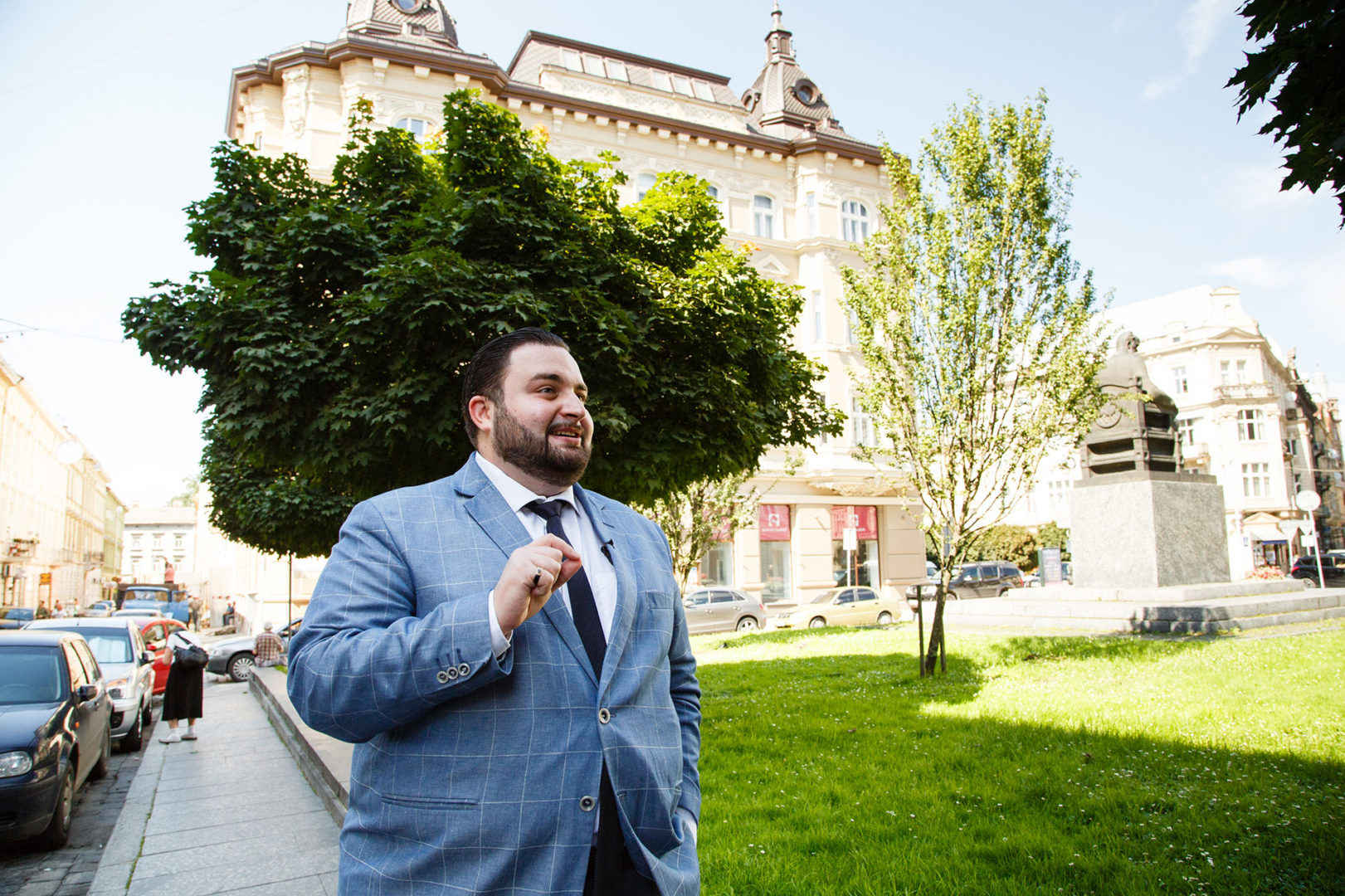
Ivan
“My name is Ivan Korzhov, I’m from Lviv. I am a Roma”. This is how the head of the office of one of the largest IT companies in Ukraine “Infopulse” often starts the conversation.
He has never concealed his nationality and, by his own example, has proved that the Roma are not different from other Ukrainian citizens. The success depends only on a desire to grow and personal qualities of everyone:
─ I have always been a person who does not allow myself to conceal it. And even when I was told: “Listen, Ivan, stay quiet. Don’t say that you are the Roma. Well, you are fair-skinned actually”. On the contrary, the first thing that I did was to come and say, “Hi, I am a Roma. My name is Ivan”. I had it as my moment of struggle. I always put it as a challenge.
Ivan’s family newer questioned whether he should get an education. His parents, grandmothers and grandfathers have higher education. He needed only to choose an area of the future profession:
─ I have had tutors since childhood. I began to study Astronomy, Physics, and things that were interesting to me as a kid even before school. The only choice I needed to make was to choose a profession. It took me a long time to choose. That’s why I have almost three higher education diplomas. I have a degree in the International Relations, Project Management and, besides, while I was working in the City Council, I studied at the Public Administration School of the Ukrainian Catholic University.
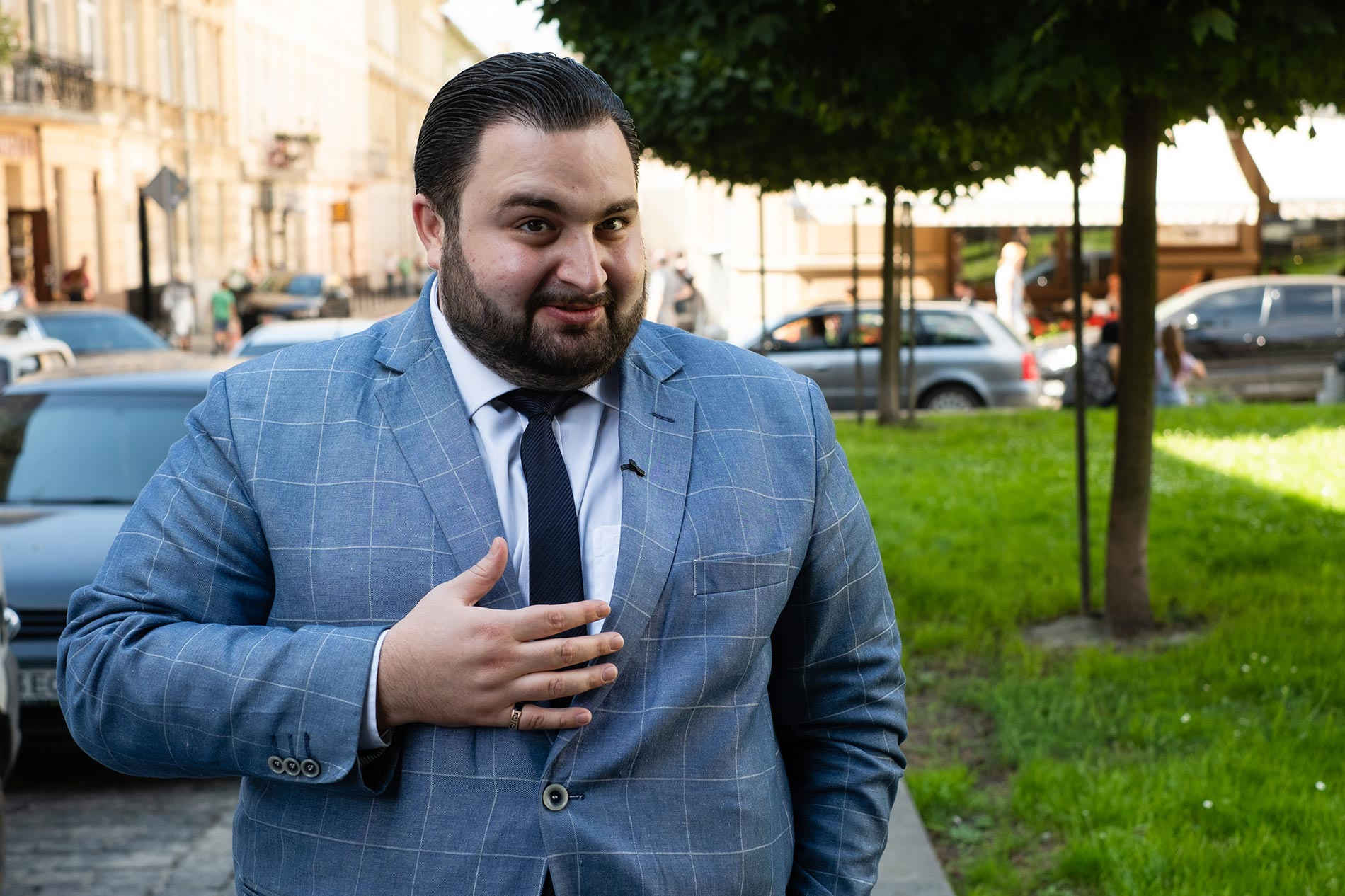
During his studies, Ivan often encountered jokes about his nationality:
─ You know, when people hear that you are Roma, they say, “Listen, do you dance, sing? Maybe, you can do fortune-telling?” And you reply, “No, come on, guys. I’m an ordinary person, the same as you. I studied at school in Lviv, and then at the university. How comes a fortune-telling? I can sing, of course, but that does not mean I would do it every time we meet”.
Ivan is one of the activists of “Ternipe”. During his studies at the university, he became one of the participants of the Romany youth internship programme at the City Council, and subsequently received a job there:
─ At some point I got promoted to the Head of the Department of Information Technologies. It was quite a success, as far as I know, because there were many things we did for the first time in Ukraine. It was probably a bit weird to hear that Romany person was leading the IT department and did the things which had not yet been implemented even in bigger cities.
Later, Ivan transferred to the IT company, thereby proving that the Roma could work on senior positions in large companies:
─ It was the moment when I needed to move on. The company we had been cooperating with opened its office in Lviv and it coincided so well that I was the person they needed at that moment. Now I supervise also the Chernihiv office of the company besides the office in Lviv.
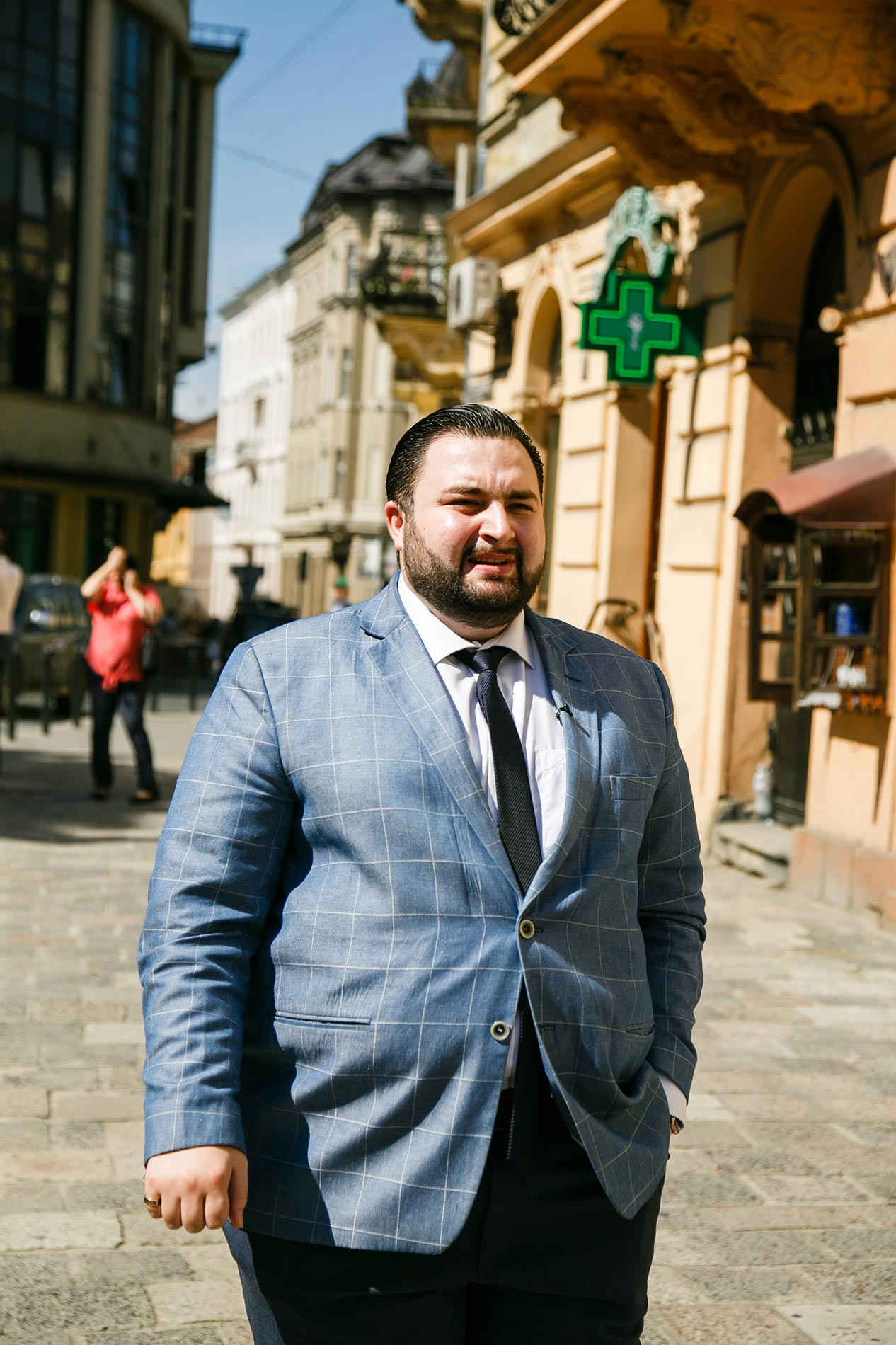
Integration of the Roma into society is one of the most discussed issues now because many of them are still very reserved in relations with the other nationalities.
Ivan says that many of Roma are uneducated, and this is also a cause of the problems in communication with other nationalities. Some people simply do not speak the language. Another serious problem is that the Roma are reserved:
─ After the Second World War, when almost half of the Roma population in Europe was killed, we have become an even more reserved nation. We don’t want to talk about what’s going on inside our minds. We don’t want to let everyone know what’s going on. We don’t want them (o destroy — ed.) our laws, language, and so on. This issue doesn’t allow us to fully integrate with the Ukrainian society.
The third problem, Ivan says, are the old stereotypes that eventually make people indifferent:
─ There are many stereotypes about us. They say, if you’re Roma, then you have to steal, tell the fortune, beg, or sell drugs. And when you hear it once, it sounds ridiculous. The second time it is not so funny anymore. The third time you get angry. And the fourth time you just don’t react anymore. And when you’re completely covered up in this cocoon, when you do not react to anything from outside, the most of misunderstanding arises. It is our fault and the fault of those who surround us.
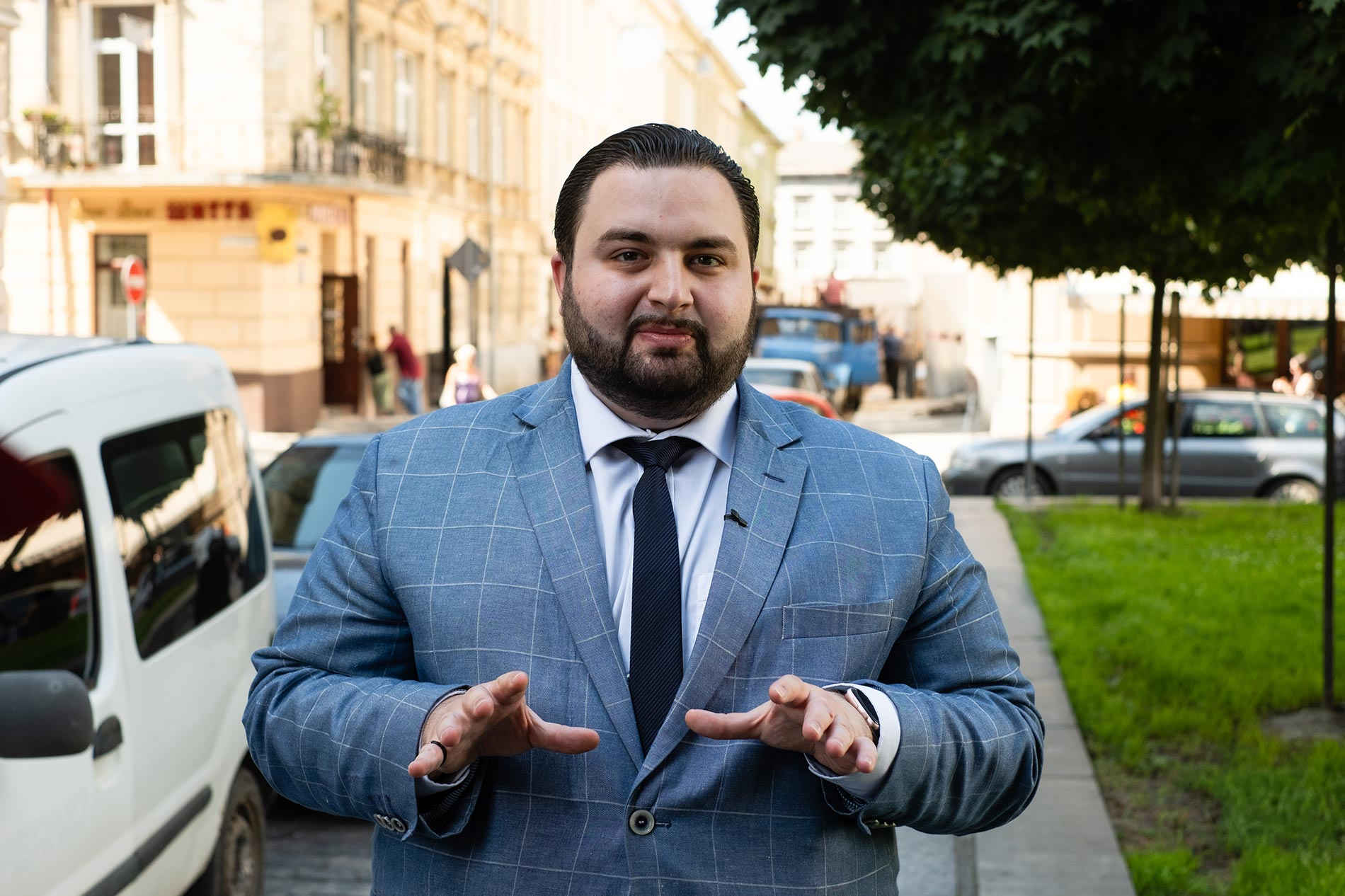
Ivan is a member of the National Selection Committee of the Roma Education Fund which has been helping the Roma from Ukraine and abroad to get an education for the last ten years. Ivan himself was a scholarship holder of this programme:
─ I see a growing quality of the young people who want to get an education – the young Roma with bright eyes who want to change something around them. I do sincerely think that this youth is a lacking element that can lead to an adequate integration of us into society, and the society into us.

